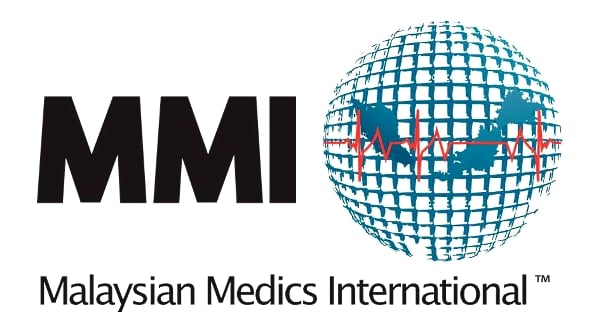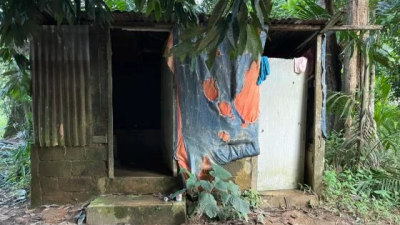
Existing inequalities in remunerations, benefits, job security and access to career progression opportunities has led to a well-being and welfare crisis that disproportionately affects contract doctors, leading to record numbers of Malaysian doctors leaving public service1, and creating nationwide rota gaps that the remaining doctors – both those on contracts and those holding permanent positions – are struggling to fill.
Left unchecked, increases in service pressures secondary to this exodus will exact a severe well-being toll on the doctors that remain in public service2.
To counteract these dire consequences, we make the following recommendations.
1. Prioritize well-being and welfare by addressing contract doctor issues
We call on the Ministry of Health (MoH) and the Public Services Department of Malaysia (JPA) to urgently work towards facilitating the timely promotion of contract medical officers to UD47 grade upon meeting the period of service that would make them eligible for this promotion3.
This would harmonize remuneration between contract and permanent doctors, which is apt given their equal contribution to the health system.
We recommend full standardization of leave availability between contract and permanent doctors, covering partial pay/unpaid leave, critical illness (TB, leprosy and cancer) leave, educational leave and childcare leave, to safeguard the well-being of contract doctors.
Guaranteeing equal access to critical illness leave would prevent contract doctors from being forced to choose between their vocation and their health, to the detriment of their well-being.
Moreover, being entitled to the same educational leave (cuti belajar) and examination leave (cuti tanpa rekod untuk tujuan peperiksaan) as permanent doctors would remove a key systemic barrier to specialty training that contract doctors currently face, and would improve contract doctor well-being by enabling them to realize their career goals through specialization.
We recommend that any changes to the leave scheme for contract doctors are formally gazetted, announced via circular letter, and made accessible through official MoH channels.
We support the Director-General of Health’s call on the Parliament of Malaysia to amend the Pension Act, that would provide contract doctors with the opportunity for permanent employment alongside social security benefits through the Employees’ Provident Fund (EPF)4, so as to secure the long-term future of contract doctors in Malaysia.
Given the importance of social security to welfare and well-being, we recommend that the feasibility of any proposed amendments to the Pension Act are thoroughly studied, and made compatible with the realities of the Malaysian healthcare system.
We believe that the Health White Paper to be tabled in November 2022 presents a unique opportunity for the reformation of the social security of contract doctors to be achieved within the next decade.
2. Implement strategies to prevent bullying and horizontal violence in healthcare workplaces
We call on the MoH and the Malaysian Medical Council (MMC) to prepare comprehensive, clear guidelines on acceptable conduct in healthcare workplaces.
We recommend that these guidelines outline an appropriate escalation plan to the MoH should hospital-level referrals fail to be dealt with in a satisfactory manner.
We propose the implementation of anonymized 360º reviews where feedback on an individual doctor’s performance and professional conduct is sought from all members of the healthcare workforce, including allied health colleagues.
This would be invaluable for reporting incidents of unprofessional conduct.
We also recommend that any submitted feedback be considered as evidence at any fitness-to-practice hearings in cases of horizontal violence.
For convenience and accessibility, we recommend that feedback forms are to be made available on the MoH e-Portal to be used by all healthcare workers so as to maximize privacy and security while minimizing cost.
For healthcare facilities where Internet accessibility is restricted, we suggest that physical copies of forms should be provided and collected on a monthly basis for further action to be taken, particularly against individuals that have received multiple complaints.
To guarantee the transparency and impartiality of the adjudication process for cases of workplace bullying and horizontal violence, we implore the MoH to establish an independent workplace professionalism panel, comprising of senior officials from the MoH, MMC, with participation from relevant doctors’ representative bodies such as MMI Doctors and MMA SCHOMOS.
The panel should have the authority to open and conduct investigations into workplace misconduct, examine and deliberate on evidence, and refer cases to the MoH for further disciplinary action. Any decisions made by the panel should be transparently disclosed, promptly updated to follow the progress of any investigations, and made accessible through the MoH e-Portal.
3. Revamp fitness-to-practice evaluations for doctors living with mental health conditions
We recommend the establishment of fitness-to-practice committees, led by a panel of suitably experienced clinicians, at each hospital. This would allow consensus-based decision-making at the hospital level, and mitigate bias or discrimination in fitness-to-practice evaluations.
These evaluations should be holistic, and consider both past and current conduct when gauging a doctor’s fitness to practice.
We recommend that the MMC reviews existing policies surrounding the assessment of “suspected impaired doctors,” as previously described in the “Managing Impaired Registered Medical Practitioners” document5.
This review should focus on introducing a set of objective criteria that would enable reproducible judgments on whether individual doctors are capable of safe practice, despite their specific mental health condition.
To accompany this, we recommend the creation of a code of conduct for assessing psychiatrists to adopt while conducting fitness-to-practice assessments.
To minimize disruptions to the career progression of junior doctors suffering from mental ill-health, we recommend that MoH introduces new policies permitting more flexible time frames for junior doctors to complete their training, particularly among housemen who are ineligible for reassignment to non-clinical duties prior to completing housemanship6.
This reduces the number of housemen being forced to withdraw from service due to mental ill-health, and destigmatizes mental health issues in the workplace, particularly among those fearing repercussions such as loss of employment.
We also suggest the establishment of MoH-sanctioned mental health support services, alongside flexible policies permitting junior doctors to hold non-clinical roles while experiencing poor mental health.
4. Introduce policies that safeguard the mental health and well-being of healthcare workers
We call on MoH and MMC to develop a national framework on mental health and well-being of Malaysian doctors and medical students that focuses on key themes including, but not limited to, improving training and working environments, improving support systems, and mitigating toxic workplace cultures.
We strongly recommend the involvement of a national working group, represented by specialists, medical officers, house officers, and medical students, in addition to a review of best practice evidence, in developing this framework.
The framework should be reviewed every five years by the aforementioned national working group to ensure its continued relevance.
We recommend that MoH implements mandatory anti-stigma workshops during the housemanship orientation period with the aim of reducing mental health stigma within this community.
These programs have proven to be successful in significantly improving stigma-related knowledge and reductions in stigma-related attitudes among healthcare providers.
For maximum impact, we recommend the inclusion of doctors with first-hand experience of living with mental health conditions in developing these sessions.
We further recommend mandatory psychological first aid training for all junior doctors, aimed at teaching doctors to identify and support colleagues demonstrating signs of serious mental distress.
Finally, we call on all doctors’ professional bodies (such as MMI Doctors and MMA SCHOMOS) to collaborate on the rollout of a national program pairing senior and junior doctors in a voluntary mentorship scheme to help develop a direct feedback mechanism to remedy any stressors contributing to their poor mental health.
We suggest an informal anonymous system of sign-ups to create a well-protected and accessible mentorship program, in turn safeguarding the privacy and security to the engaging doctors.
In conclusion, junior doctors are an integral part of the Malaysian healthcare workforce.
Safeguarding the well-being and welfare of our junior doctors is not only an act of social responsibility, but is also pivotal to maintaining the operational efficacy of our healthcare system by combating the mounting service pressure caused by the attrition of junior doctors within the health system.
References:
- Codeblue: Contract doctors quit in droves during Covid-19 pandemic. CodeBlue. 2022.
- Vinod G. Doctor shortage: Get cracking on the matter, MMA tells MOH. Focus Malaysia. 2022.
- Arumugam T. Medical groups welcome Health Ministry’s announcement. New Straits Times. 2022.
- The Star. Health DG calls for special task force to look into issues affecting contract doctors. 2021.
- Malaysian Medical Council. Managing impaired registered medical practitioners. Malaysian Medical Council; 2010.
- Ministry of Health Malaysia. Guidelines for Managing Doctors with Psychological Problems and Disorders in the Ministry of Health. 2017.
ADVERTISEMENT
ADVERTISEMENT


































